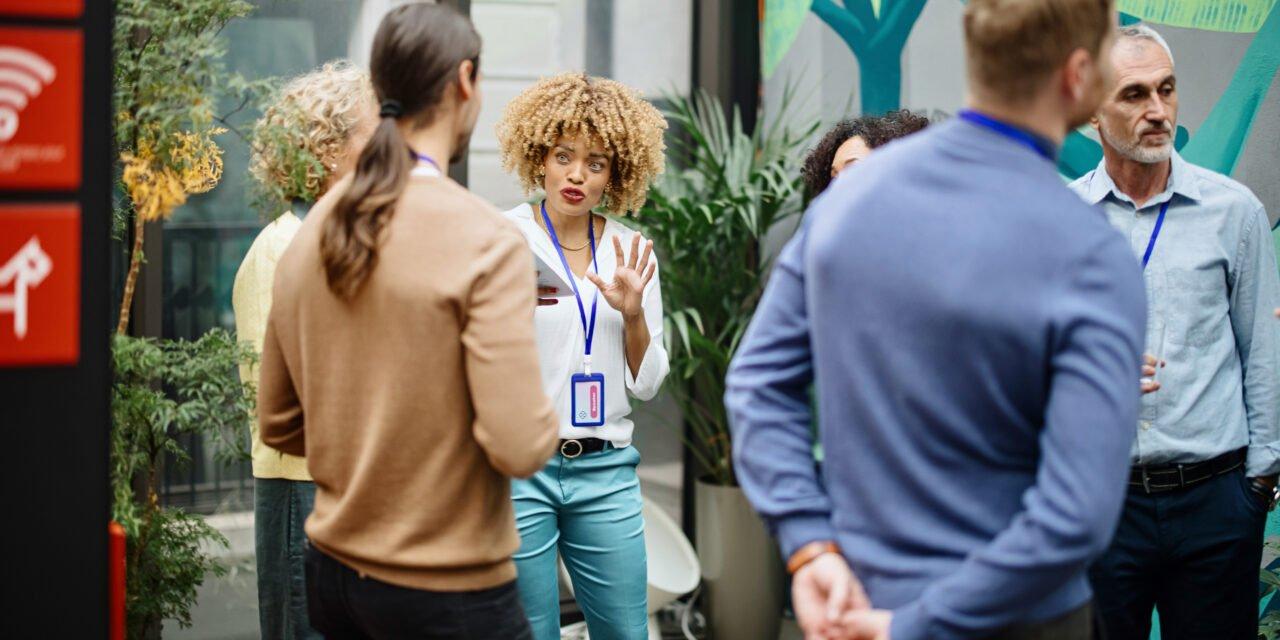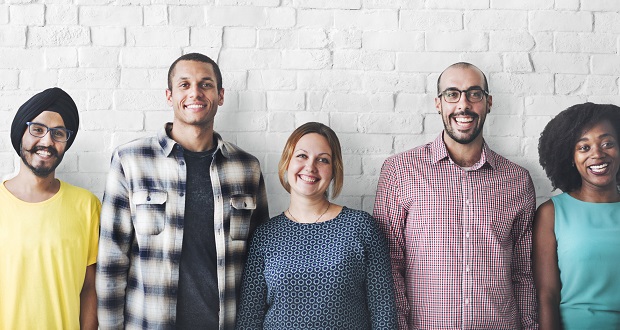
Do you consider yourself a discerning person? Someone who isn’t easily swayed by pundits or propaganda and can see right through prepared talking points or an agenda? Excellent. Then I will let you in on a dirty little secret about DEI that some people don’t want you to know: You have already benefitted from DEI programs and policies, and you might not have even realized it.
A narrative that is being echoed over and over in certain spaces is that DEI is exclusionary. (Maybe this is because people don’t know what the acronym actually stands for? The “I” is literally “inclusion.”) You might have seen the snarky hashtag #DidntEarnIt or heard people refer to Kamala Harris as a “DEI presidential candidate.” This is all a distraction.
At least 10 states have already passed anti-DEI legislation and at least 19 others have proposals working their way through state government. Countless colleges and universities are disbanding or rebranding their DEI programs and companies like Tractor Supply Co. are loudly eliminating DEI efforts completely, despite the overwhelming evidence of how beneficial they are.
There is a rapidly spreading misconception — systematically organized and advanced as propaganda by those without an understanding of DEI but an agenda against it — that DEI only exists to unfairly advance members of marginalized communities because it’s something they couldn’t accomplish on their own merits … or some Machiavellian plan to create a new world order.
The truth is, EVERYONE benefits from DEI. It’s the whole point.
DEI is for, and benefits, literally everyone. Regardless of your personal dimensions of diversity, you’ve benefitted from one or more DEI policies.
Count How Many Make Your Life Better
Here are just a few DEI policies, practices, or benefits you might have experienced:
- Flexible work schedules
- Paid time off
- Paid sick leave
- Parental Leave
- Domestic or married partner benefits
- Adoption or IVF support
- Mentorship and professional development programs
- Child care support
- Pay transparency
- Anti-harassment policies
- Anti-retaliation policies
- Anti-bullying policies
- Accessibility accommodations (like access to note-taking apps, project management software, headsets, ergonomic chairs, or keyboards, etc.)
- Workplace signage
- Employee assistance programs
- Coaching
- Closed captioning or subtitles in virtual meetings
- Online messaging tools like Microsoft Teams or Slack
The list goes on. All of these policies or benefits address a specific physical or mental need that one might have in order to bring one’s best self every day.
What did you experience as you read this list?
Reconciling Our Feelings
This is a tension point where I normally hear pushback. Did you have a moment where you went through the list and started checking off what you didn’t think was DEI? Every single policy or practice on that list is a result of DEI concepts — whether it’s called that or not. Unions fought for standardized working hours. President George H.W. Bush signed the Americans with Disabilities Act in 1990 that mandated into law civil rights for people living with disabilities. Each is also an example of DEI in action. Policies or practices don’t need to originate within a DEI department or team to qualify as a DEI practice. In the best functioning organizations, DEI is in ALL departments. DEI is as broad and varied as we are — hence the “D” for DIVERSITY.
Maybe you’ve wondered about or experienced tension around how DEI helps business owners as opposed to employees. Arguably, the examples above are mostly focused on employees. However, employers benefit from DEI through financial gains, more engaged and satisfied employees, and a more positive workplace culture. (This is where I would normally whip out my laundry list of statistics, but they are widely available facts at this point and honestly, continually pointing to the “business case” for DEI never makes much traction among devoted detractors.)
Maybe you felt a tension about how “small” some of these examples seem. Did you scoff when you read “workplace signage” or messaging platforms? Tools like these are examples of accessibility for neuro-atypical people. Note-taking apps are amazing supports for people with ADHD. What may seem small, insignificant, or superfluous for one person could be the one thing necessary for success for another. That’s what is so elegant about DEI.
DEI is about creating policies, practices, and systems that enable people to thrive in a given culture — whether that is at work, at school, or somewhere else. Thriving cultures allow people to bring their full selves to a given situation, free from fear of harassment or reprisal, and utilize their unique skills and voice to meaningfully contribute to an organization’s success. There is still a lot of work that needs to be done here, especially in the “free from harassment or reprisal” aspect, but DEI has made workplaces better for everyone.
Let’s think back to that hashtag for a minute, #DidntEarnIt. What is the thinking behind that? The misconception is that people are asking for special privileges, or special treatment based on identity and not merit. This resistance is based on fear — fear of missing out on something, losing access to some benefit, or the perception of unfairness. That’s where the “E” in DEI comes in — equity. EQUITY, not equality. Equity means we all win.
It’s a subtle, but important distinction. DEI is not a blanket policy that applies the same to everyone, because not everyone has the same needs in order to thrive — and that is what makes it so powerful. It’s also what makes it so intimidating. Some people equate EQUALITY with fairness. Equality means everyone gets the same thing. As an example: I used to work at a company that gave every employee a free turkey at Thanksgiving. They thought it was a nice employee perk. Was it? Maybe for some. Not for vegetarians, those with dietary restrictions, people who don’t celebrate Thanksgiving, or others who prefer to get their turkey from their local sustainable farmer. Equality is easy. Give everyone the same thing and it’s equal and fair.
But DEI, especially the “E” for Equity goes beyond fairness — to true parity. It means allowing people the personal opportunity to thrive. A more equitable approach to the turkey situation could have been a gift card for a local grocery store, or DoorDash, or a paid day off. Everyone can get access to something that will demonstrate the company’s gratitude, but also allow employees to receive a benefit that is truly valuable and supports them.
So, if you’ve heard all of the loud pushback against DEI and started to wonder if there was a kernel of truth to it, the truth is DEI has, and continues to, benefit everyone. The “I” in DEI stands for INCLUSION, which literally means “bringing you in, making you a part of, INCLUDING you.” DEI is what you make it. Next time you hear someone complaining about how DEI is exclusionary, or racist, or a scam, share some ways that you have benefitted from DEI. Set the record straight. Don’t allow these disingenuous attacks to stand. I will continue to be #DEIProud and I urge you to join me.



















